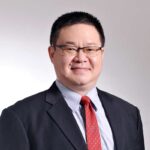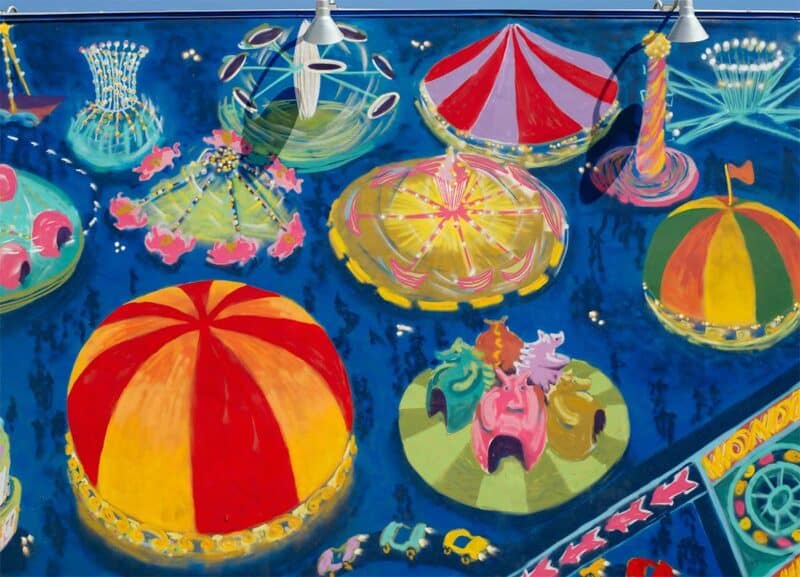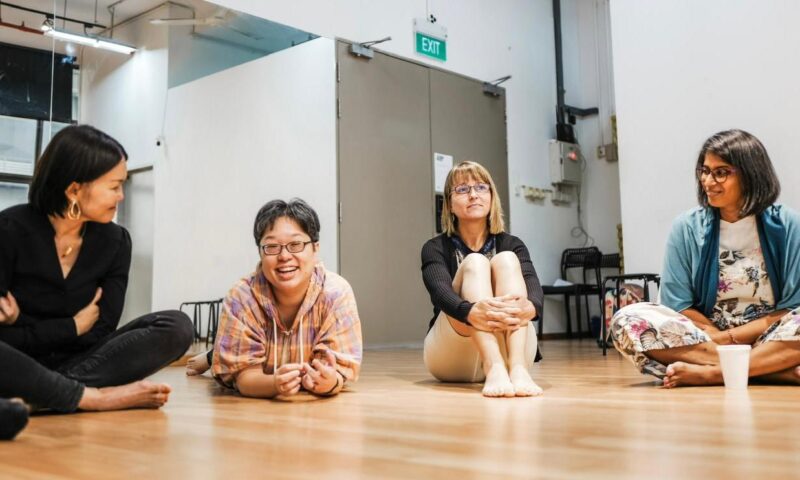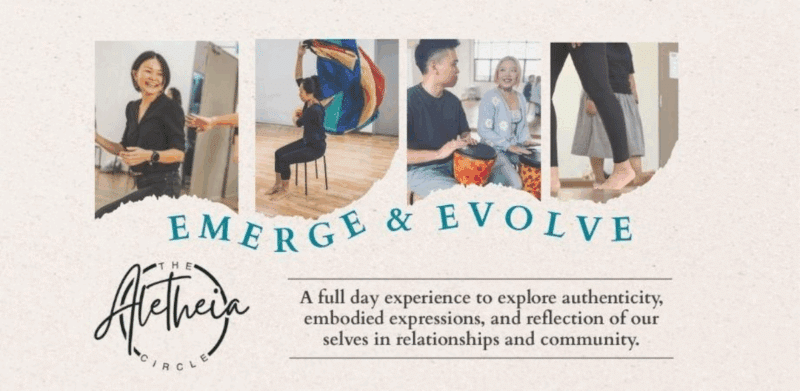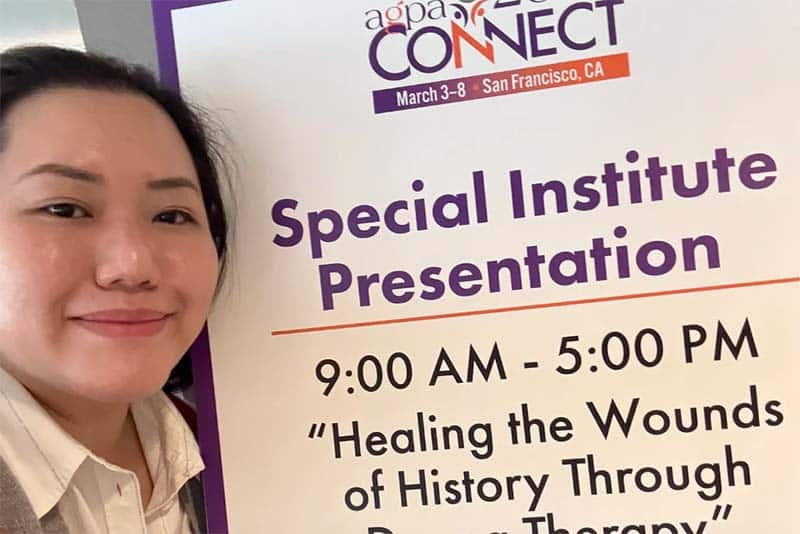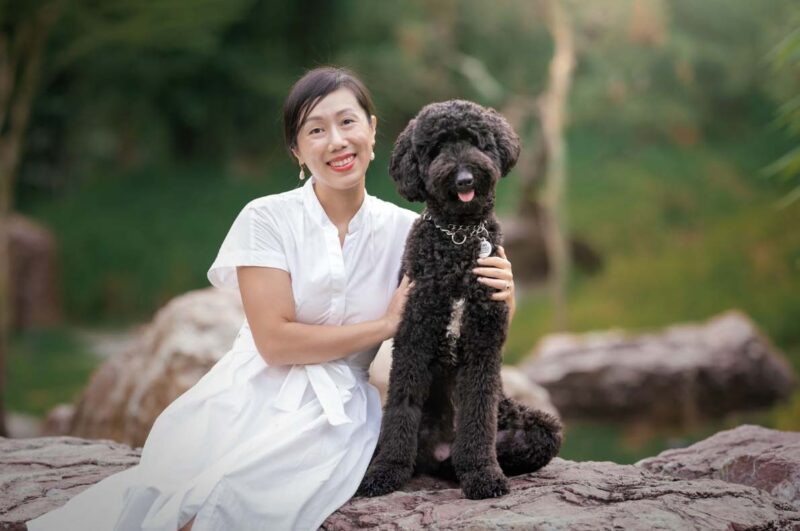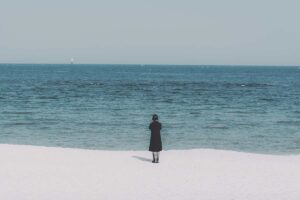Having spent about half of my life in both the US and various parts of Asia, I endeavor to incorporate the best of the East and the West.
From the East, I experience deeply that “blood is thicker than water.” I learned about family pride and honor.
I recall the pride and relief I felt upon being hooded during my doctoral hooding ceremony. The important thing is that this event took place in front of my extended family. The pride I felt was not for myself but for the honor it brought to my family. My degree was not my own but the culmination of countless sacrifices that my immigrant parents made in pursuit of the American Dream.
At that point, I became aware of how Chinese I was. Though I received very little tangible family support as I labored through my doctoral program, the pride that I felt was not my own, but that of my family. I’m sure many of you can relate to this.
On the other hand, from the West, I learned about individual expression. I learned about the importance of expressing our deepest feeling to each other even though my father did not model this for me. I also learned how to offer hearty hugs from my American friends. Boy was it awkward at first! Most of all, I learned about how parents loved their children by giving them freedom.
I saw how American children grew up to be less burdened by guilt and obligation. For:
Unto us a child is born
Unto us a son is given
Not out of us
by us
from us.
Not we are going to make
we are going to have
we are going to get or produce
But unto us a child
is born.
Additionally, in the beautiful words crafted by the Poet:
Kahil Gibran – “On Children”
Your children are not your children.
They are the sons and daughters of Life’s longing for itself.
They come through you
but not from you,
And though they are with you yet they belong not to you.
You may give them your love
but not your thoughts,
For they have their own thoughts.
You may house their bodies
but not their souls,
For their souls dwell in the house of tomorrow,
which you cannot visit,
not even in your dreams.
You may strive to be like them,
but seek not to make them like you.
For life goes not backward nor tarries with yesterday.
You are the bows from which your children
as living arrows are sent forth.
The archer sees the mark upon the path of the infinite,
and He bends you with His might
that His arrows may go swift and far.
Let your bending in the archer’s hand be for gladness;
For even as He loves the arrow that flies,
so He loves also the bow that is stable.
What is love and what is filial piety/obligation? (Which often feels like obligation to me)

Filial piety and family harmony is lived out differently across various different cultures.
For example, I’ve lived in Hong Kong for five years. It was somewhat amazing to me that many people in Hong Kong have dinners with their families of origin and even extended families once a week. More accurately, I should say that my friends in Asia are amazed to learn that the last time my entire family of origin shared a meal together was at my younger sister’s wedding, 24 years ago! Obviously geography plays an important part in the difference.
In addition to cultural, geographical and economic differences, there are other important psychological differences. How filial piety is lived out differs across cultures in regards to the following psychological themes:
- Isolation and Enmeshment
- Individuation/Differentiation and Filial Piety
- Freedom and Responsibility
- Harmony and Authenticity
- Love and Obligation
My understanding of these themes is informed by my practice as an existential psychologist. But these are universal themes, not particular to existential psychology. It’s just that as existential psychologists, these universal themes/struggles, existential “givens” constitute the central focus of our clinical work.
Life Is Not a Problem to be Solved
Note that I did not construct these contrasting themes as dichotomous and opposing. Not either/or but both/and. This way of understanding is informed by my readings in existential psychology and philosophy which seeks to integrate such contrasting themes and embrace them as paradox. Indeed much of therapy and life is about living with the tension and integration of such contrasting themes.
For indeed life is not a problem to be solved but a mystery to be lived. It’s not that we don’t help our clients to find solutions for sometimes solutions are called for. But more importantly we respect and trust that clients will arrive at their own answers, their own “ways of being” when they begin living a more authentic life.
But more than that, Carl Jung reminds us that “The greatest and most important problems of life are all fundamentally insoluble. They can never be solved but only outgrown.”
When it comes to the existential givens, such as death and loss, the transience of time, detachment, freedom and responsibility, existential isolation and meaninglessness, there are no solutions but “stances or attitudes that we can adopt towards these” universal struggles or concerns.

Freedom, Authenticity and An Existential Attitude
For clients come to therapy when they are in pain. Often times, if we adopt more of an existential lens, we’ll come to appreciate that they pain that brought them to therapy is existence pain. Ontological pain. The pain that is inherent in existence.
Our roles as psychotherapists (attendants to their souls) is not so much to ameliorate the pain, but help the clients to develop a different relationship with that pain. This may include initially helping the clients to lower the pain to a manageable level so as to get back to functioning in their daily lives. But a fundamental level of that pain can never be removed.
Instead, we help our clients to realize that the pain they want to avoid is also an incredible life force. We help our clients to develop an An Existential Attitude towards life that comes from a deeper awareness and wisdom that results from a confrontation with our existence.
In regards to the existential givens, much of western psychology that I’ve learned stresses the importance of individuation and differentiation. From existential psychology we talk about the importance of authenticity, congruence, freedom and responsibility.
Authenticity and congruence has to do with having the courage to be true to oneself; a self that can be at times antithetical to familial and cultural values.
Existentially, we’ll talk about freedom as paradoxically being condemning and inescapable. Sartre, a French philosopher believed that we are condemned to freedom. Similarly, Eric Fromm an American psychologist wrote a book titled Escape from Freedom.
That in order to live a full and meaningful life, we need to accept and embrace that we are the uncontested author of our own lives.
That to live responsibly, we must not allow others including family and society to write the scripts for our lives. This is what I’ve learned from the West.
And then, in my clinical practice and supervision, I sit across from Asian and Asian American students who struggle with choosing their majors, their career paths, at the risk of being disobedient to their parents’ wishes, stated or implied.
In addition to their family values, they must also contend with societal values as well. Filial piety and societal harmony would have them be obedient to these two powerful institutions. For such obedience, they shall be well rewarded.
How about you? Does this apply to you? I know many of you have made tremendous sacrifices to follow your heart and be true and authentic to your beings. These include substantial financial, physical, emotional, and relational sacrifices.
Yet, what is your reward for such sacrifices? Misunderstanding or silent disapproval from their parents and loved ones. Being “jokingly” referred as being crazy by your friends. A more authentic self? The uncontested author of your own lives. Isolation is the price for authenticity. Living with the tension of filial piety, family harmony and authenticity.
About the Author
Mark Yang, PsyD is an American licensed clinical psychologist and is actively involved in the training and supervision of psychology students from the Existential-HumanisticPerspective throughout Asia.
Dr. Yang is the author of the book Lighting the Candle: Taoist Principles in Supervision Conducted from an Existential-Humanistic Perspective. He is also the editor of the book Existential Psychology and the Way of the Tao: Meditations on the Writings of Zhuangzi and the co-editor of the books Existential Psychology: East-West Volumes 1 & 2.
Dr. Yang was born in Taiwan and immigrated to the United States when he was nine years old. He is also a dog and cat lover.


